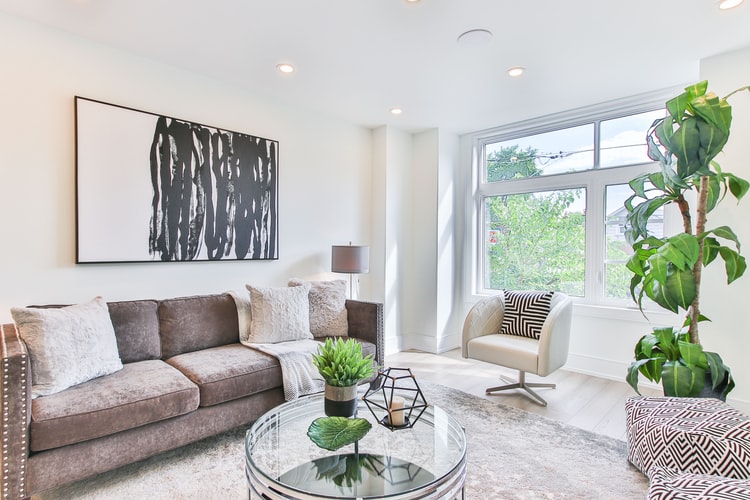1. Choose Pieces that Do Double Duty
In a small space, choose wisely when you pick your furniture. Find pieces that serve multiple purposes, like the daybed from Coaster Furniture pictured above. The daybed is a sofa by day and a bed by night with the additional feature of a trundle to accommodate another guest. In the living room an ottoman with storage and beds with drawers can control the clutter and add to the function in a small space.
2. Use Lighting and Mirrors
Proper lighting is especially important for smaller spaces. Make the most of natural light and add to the light sources in the room with a perfectly placed floor lamp, sconces, table lamps and chandeliers. A mirror can make the most of natural light by reflecting it all around while creating the illusion of greater space.
3. Go for Larger Rugs
Remember that an undersized rug can make a smaller space look cramped and insignificant. A better idea is to stay within a limited colour palette and choose a rug that is large enough to accommodate all the furniture.
4. Think about Placement
Placing your furniture too close together and pushing pieces against the wall can give a small space a cramped look. Get rid of any extraneous items and focus on the main items so you can pull them away from the wall, even if it’s just a tad, and give the furniture breathing room to create a feeling of space.
5. Accentuate the Room’s Best Features
Assessing the room’s assets and making those the focal point as much as possible is the best way to make the room appealing. If it’s got great light, play that up with lighter colours to create a sense of expansiveness; if it has a stunning fireplace, draw attention to it.
6. Scale Down Furniture
In a narrow living room, every piece of furniture matter. Choose leaner tables and wall sconces to save much-needed floor space. For seating, tight-back sofas like this one from Domayne and club chairs are your friends. They can be a lot less deep than loose-back options while still being just as comfortable. Consider wall-mounted shelves and a floating desk over bulky bookcases and workstations.
7. Get Creative with the Layout
Limited space challenges you to think beyond seating conventions. If the room is narrow but also long, try placing sofas back-to-back to allow for two seating areas.
8. Use Decor to Add Visual Interest
Having several different lighting sources at different heights will draw your eye to different areas of the room, making it feel bigger and more interesting. Also try adding a larger attention-getter to balance scale, such as a piece of art or built-in bookshelves. Try an eye-catching gallery all or artwork or mirrors or add a bold accent wall or wallpaper.
9. Float a Selection of Furniture
In any room that’s tight on space, it’s tempting to push all big furniture up against the walls to create a kind of pool of open flooring in the middle. But while useful for doing cartwheels—and there is some real liberation in being able to do just that—the space would be put to better use serving a function.
10. Task an open bookshelf as a zone divider
It’s an instant storage injection within open-plan layouts and provides a nice visual break while welcoming you into the living area.
11. Install open shelving
Make the most of your lounge room’s blank walls by adding open shelves and cupboards. Let your book collection take centre stage by colour coding your favourite titles.
For more, visit Domayne.





